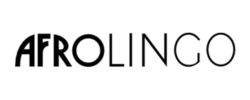Africa is a land of many cultures, and even many more business opportunities! The continent is brimming with investment opportunities that keep attracting more and more international brands to the African market.
However, succeeding in such a growing and intricate business landscape comes with some real challenges, but it is nothing that a well-thought-out strategic African market localization can’t overcome.
So, how do businesses make it in the African market? And how can the African market localization streamline their market entry and expansion? Let’s find out!
Africa’s Rising Opportunity: A Market Too Big to Ignore
With a population of over 1.5 billion, 60% of whom are under the age of 25 and a median age of around 19 to 20 years, Africa is declared by many as the world’s youngest continent.
The economic growth across Africa is one of the fastest in the world. The projections from the International Monetary Fund and the World Bank are quite impressive, indicating that Sub-Saharan Africa’s economy alone is expected to grow by 3.3% to 3.9% in 2025 and reach 4% by 2026.
Leading this change are the main
The economic hubs like Nigeria, South Africa, Egypt, and Kenya are leading this change on the continent, creating an excellent ground for business expansion.

This growth is actually supercharged by the continent’s mobile-first digital revolution. Africa leads the world in mobile internet adoption, with mobile devices accounting for 69.13% of total web traffic as of 2025.
By the end of 2025, the continent is expected to have over half a billion e-commerce users, with the market projected to reach a staggering $113 billion by 2029. Some studies show that there is a chance the whole continent will be almost entirely mobile-based by the year 2040.
This rise in connectivity is fueling the demand for African localization to provide the right localized digital products and services, from fintech solutions to e-commerce platforms.

There is also the African Continental Free Trade Area (AfCFTA). This groundbreaking agreement has created the largest free trade area in the world, with an aim to reduce 90% of tariffs and non-tariff barriers. The World Bank estimates that the AfCFTA could boost Africa’s income by $450 billion and lift 30 million people out of extreme poverty by 2035.
For businesses, this means simplified cross-border trade and unprecedented access to a unified African market.
The Language and Cultural Mosaic of Africa
To succeed in the dynamic market of Africa, brands must look beyond economic data and understand the rich cultures and languages that define the continent. With over 2,000 languages spoken across 54 countries, just translating your brand will never work.
The linguistic diversity of Africa is not like any other! While Arabic is predominant in North Africa, English and French are widely used in business and government in West, East, and Southern Africa.
There is also the Portuguese language in countries like Mozambique and Angola.
But this is only the starting point for a business; to actually make a true connection with African consumers, you also need to embrace the indigenous languages like Swahili, Hausa, Yoruba, Amharic, isiZulu, Shona, and the many various South African languages!
You can’t have a successful business in Africa without speaking the continent’s languages, and that’s why any business looking to expand in Africa needs African market localization.
Research consistently shows that consumers —around 76% to be exact— are more likely to engage with and purchase from brands that communicate in their native language. This is particularly true for South African consumers, who favor brands that make an effort to communicate in languages like isiZulu, for example. In fact, an effective isiZulu localization, for instance, can build the trust necessary for long-term brand loyalty.
Understanding distinctions like the common code-switching language usage, where speakers mix languages like English and isiZulu in a single conversation, makes any business’s marketing feel truly authentic and connected to the local reality.
What Is African Market Localization?
African market localization is the strategic process of adapting a product, service, or content to meet the specific linguistic, cultural, and regulatory requirements of a target market within Africa. It is a practical application of a localized strategy that moves far beyond simple translation. This distinction clarifies the common question of localization vs translation.

This process is best understood within the GILT framework (Globalization, Internationalization, Localization, and Translation):
- Globalization: Designing products with a global audience in mind.
- Internationalization (I18n): Engineering platforms to be adaptable without fundamental redesigns.
- Localization (L10n): The deep adaptation phase, tailoring everything from UX to payment methods. This involves significant content adaptation.
- Translation (T9n): Accurately converting text to be linguistically correct and culturally appropriate.
A successful African market localization strategy integrates all four, transforming a global product into a truly local experience.
How African Market Localization Drives Brand Growth?
While content localization might not play such a big role in other markets, African market localization has been a game-changer in the continent for many brands. For instance, Coca-Cola’s “Share a Coke” campaign succeeded by replacing its brand name with popular local names. Similarly, KFC adapted its menu and marketing with campaigns like “Streetwise” to reflect local tastes and affordability.
So, how exactly does African market localization make such a powerful impact?

Builds Trust and Relatability: Communicating with consumers in their native language fosters a deeper connection. Brands like Vodacom achieved this with their iconic “Yebo Gogo” campaigns, which used local humor and relatable characters to create a lasting bond with South Africans.
- Creates a Competitive Advantage: In a marketplace where many international brands still rely on a generic approach, genuine African market localization can be a significant differentiator.
- Boosts Conversion and Engagement: Data consistently shows that localized content leads to higher engagement and conversion rates. This is a core benefit of a well-executed localization marketing strategy.
- Ensures Regulatory and Cultural Compliance: Navigating the legal and cultural landscape of 54 different countries can be complex. Proper cultural adaptation in South Africa, for example, is essential, as is ensuring full POPIA Compliance to protect consumer data and build trust.
- Enhances Digital Presence: A localized website improves user experience and drives traffic. Effective digital marketing localization and multilingual SEO are crucial for ensuring your brand is visible to consumers based on their local search behavior.
How to Build an African Market Localization Strategy
For brands targeting South African market expansion localization, developing a successful African market localization strategy is the way to go. While developing that strategy, you need to consider regional marketing in your approach. Here are some of the main points you need to guide your African market localization plan:
- Market Prioritization: Africa is not a monolith. Begin by identifying high-potential regions and countries based on your specific industry and product-market fit. This includes granular analysis, such as localizing for Gauteng / Cape Town markets specifically, as each province has unique demographic and linguistic profiles.
- Language Mapping: Once you’ve identified your target markets, map out the key languages for each region. This will likely involve a mix of official and prominent local languages.
- Cultural Insights and Adaptation: Go beyond language to understand the cultural nuances of your target markets. Research local values, communication styles, and sensitivities to inform your strategy for multilingual content in South Africa and beyond.
- Build Your Team and Partnerships: Assembling the right team is critical. This should include in-country linguists, cultural consultants, and localization experts who possess a deep understanding of the local context.
- Content and Platform Localization: Systematically adapt all your consumer-facing assets, including your website, app, marketing campaigns, and customer support.
- Continuous Testing and Refinement: African market localization is an ongoing process, not a one-time project. Continuously monitor performance, gather feedback, and use these insights to refine your strategy.
Final Thoughts
Success in Africa requires a deep understanding and respect for its rich cultural and linguistic diversity. That’s why businesses need more than simple translation; they need African market localization for a real cultural adaptation that can build trust, drive engagement, and establish a lasting and profitable presence!
Ready to start your African localization journey? AfroLingo specializes in African market localization best practices, capturing meaning, tone, and culture with 4 ISO certifications guaranteeing quality and security. Whether you need website localization, mobile app adaptation, or culturally attuned marketing materials, AfroLingo will help you speak directly to the heart of your target market across African markets!
FAQs
Why is localization essential for doing business in South Africa?
Localization is crucial in South Africa to connect with its diverse population. With 12 official languages, communicating in a consumer’s home language shows respect for their culture, builds trust, and increases brand loyalty and customer satisfaction.
Which South African languages should I prioritize?
While English is widely used in business, prioritizing languages like isiZulu, the most spoken home language, is key to reaching a broader audience. The choice of other languages will depend on the specific regions you are targeting.
How is localization different from translation?
Translation is the process of converting text from one language to another. Localization is a more comprehensive process that adapts all aspects of a product or content—including images, colors, UX, and payment methods—to the cultural, social, and linguistic norms of a specific target market. You can translate without localizing, but you cannot localize without translating.
How does localization impact SEO and organic search in South Africa?
Localization significantly impacts SEO by making your content discoverable to users searching in their native languages. A multilingual SEO strategy involves researching and targeting local keywords, which can be very different from their English equivalents, thereby increasing your organic traffic from a wider audience.
What regulatory or compliance issues apply when localizing for South Africa (e.g., POPIA)?
When localizing for South Africa, achieving full POPIA Compliance is mandatory. This law regulates how companies collect, store, and use personal data, requiring explicit consent from individuals for marketing communications.
How often should I update localized content (e.g., campaigns, product info)?
Localized content should be updated as regularly as your source content. This is especially important for marketing campaigns, product information, and any time-sensitive content. A continuous localization process ensures that all your markets receive the most current and relevant information.


